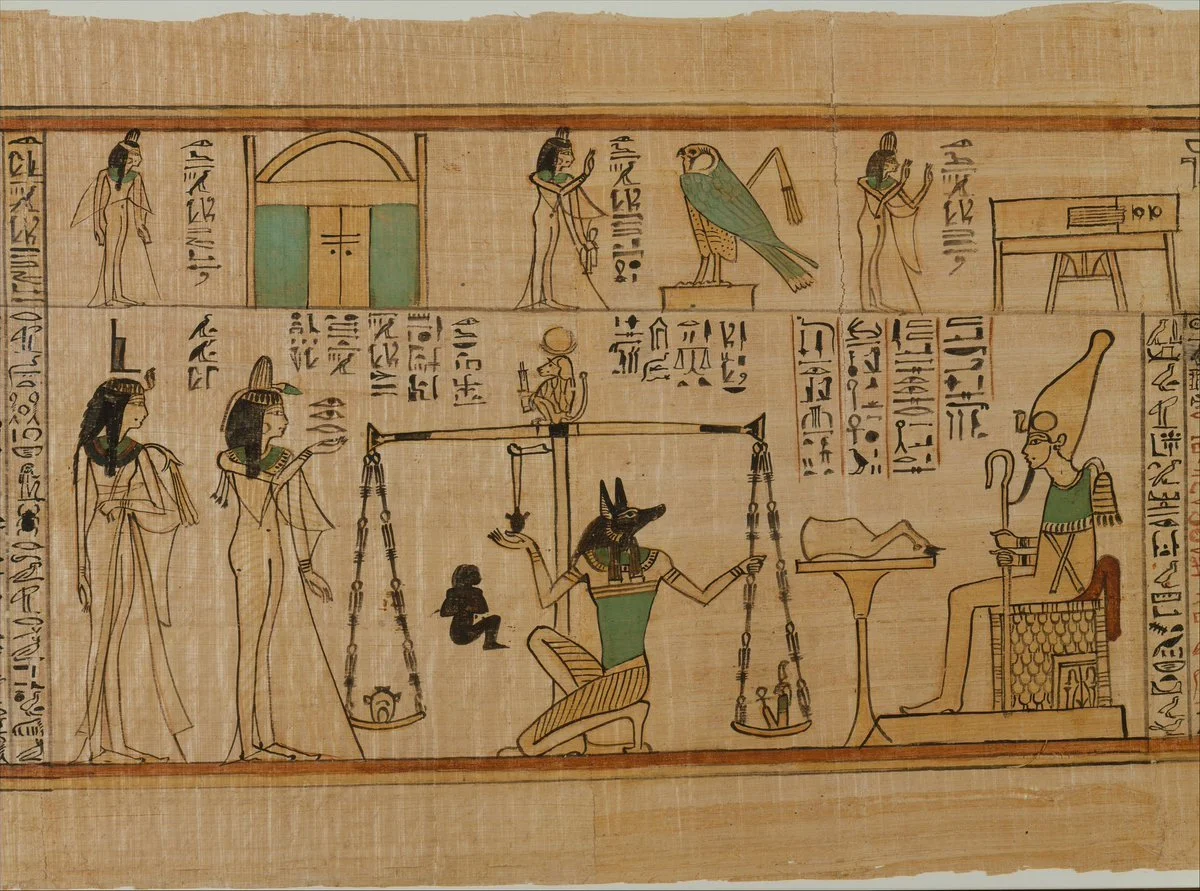THE WEIGHING OF THE HEART
“I am just and true; I have not spoken lies wittingly, nor have I done aught with deceit.” ~ Ani the Scribe
Artwork: The Weighing of the Heart in the Egyptian Book of the Dead at the MET Museum.
Our first reading assignments focused on two ancient Mesopotamian texts: the Exaltation of Inanna by Enheduana and the anonymous Epic of Gilgamesh. Enheduana, the first known and named author, was a high priestess who was wronged and cried out to the gods (specifically, the goddess Inanna) for help and Justice.
We also recognized in Gilgamesh universal themes like the reality of our shared mortality, and the quest for immortality. When Gilgamesh loses his best friend, he attempts to save him by journeying to the underworld, and although he makes it there, there’s nothing he can do to bring Enkidu back. Gilgamesh visits the survivor of an ancient and great flood (a character much like the Old Testament Noah in many ways) and learns of a plant that grows deep underwater that grants immortality. He even manages to retrieve it—but then it’s snatched away by a snake.
Students noted how many of these themes and struggles are still at the core of the stories we tell and watch today. Although much has changed since 2300 BC and 2100BC, we share common concerns of humanity, and questions, that transcend time. Next, to continue setting the stage for reading works in the “Ancient Intellectual Tradition” and our theme of “Meaning, Morality, and the Quest for Purpose,” we go to Ancient Egypt.
Thanks to the invention of papyrus, knowledge became more portable, and our visit to ancient Egypt takes a look at some of the most famous copies of scrolls that became known as The Book of the Dead.
The Weighing of the Heart in the Book of the Dead describes a moment of judgment in the Afterlife. The heart of the deceased is weighed against a figure of the goddess Ma’at (who embodies the cosmic order and ethics) or the feather of Osiris. If it was free from misdeeds and poor moral choices, the soul passed into the afterlife. But if the heart was heavy, weighed down with misdeeds, then the soul was devoured by the terrifying monster Ammit, part crocodile, part lion, and part hippopotamus. All of this reminds us that the concept of morality and just vs. unjust behavior doesn’t originate with Christianity—and neither does the idea that what we do in this life echoes in eternity.
-
Watch “The Egyptian Book of the Dead” from TED Ed.
Read background from the MET.
Watch “The Weighing of the Heart” from the MET.
